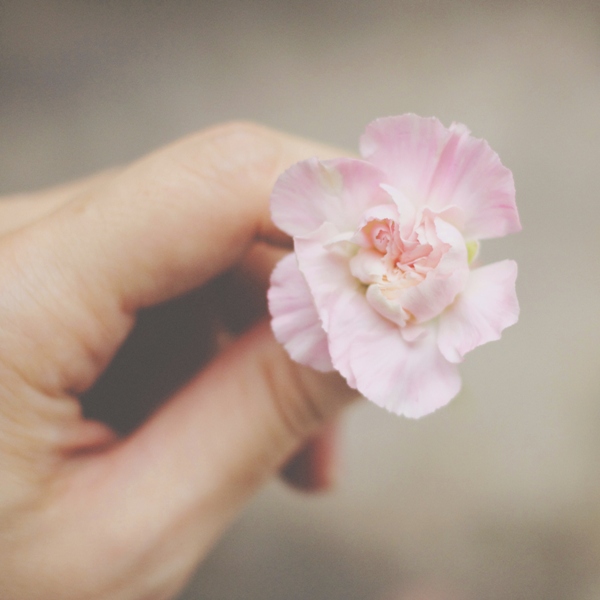 Love and compassion are necessities, not luxuries. Without them humanity cannot survive. -Dalai Lama
Love and compassion are necessities, not luxuries. Without them humanity cannot survive. -Dalai Lama
In life we encounter many different experiences. Some are joyful and uplifting, and others are painful and challenging. When we encounter joy, there is a yearning to have it last forever, but when there’s pain our first reaction is to avoid, ignore, or push it away. When we react to joy or pain with any form of resistance—clinging to joy, pushing away or ignoring pain—we suffer. What helps us walk through our suffering and the suffering of others is to become aware of when we are reacting to pain and learn to transform this reaction into a compassionate, caring response.
Cultivating a Compassionate Response
My first encounter in learning to confront suffering with compassion was many years ago, when I held a position as an intern at a center for survivors of domestic violence. In this environment, I learned a great deal about extreme suffering, as the women I encountered lived in a hostile, aggressive, and sometimes dangerous environment. In the beginning I felt overwhelmed just trying to learn how to help people deal with life-threatening, painful situations while remaining objective. Working in this setting was stressful, and I recall leaving the center in tears as I watched clients return to hostile and oftentimes dangerous situations. It brought up deep feelings of helplessness, frustration, and judgment.
In helping these survivors, my initial reaction was to try and fix, change, or in some way rescue them. This was a reactive response as I was trying to get the pain (theirs and mine) to subside, and guess what? It didn’t work! It only increased my own feelings of helplessness and didn’t create the supportive, compassionate environment that promotes healing and empowerment. Luckily, I had a compassionate, patient, and wonderful supervisor who taught me that providing a nonjudgmental presence, connecting with an open heart, and having compassion towards the person, and myself, as I listened to their stories was what healed. This meant I had to let go of trying to control the outcome and allow myself to be present with their pain and my own. It was a growth experience that continues to help me in my professional and personal life.
Opening Heart and Mind Helps Connect and Heal
Running groups for survivors of domestic violence, I hear stories about physical, emotional, and verbal abuse. These stories are traumatic and heart-breaking. They all share a common theme of fear, loss of identity, and confusion. The shared experience of having to set aside their needs in an attempt to meet the needs of a controlling partner, whose wants and expectations are insatiable and unrealistic, left them with a sense of low self-worth, shame, and suffering. What helps them heal and become empowered is their ability to let go of judgment, share their stories in a supportive environment, and learn to develop a practice of self-care and compassion.
What Gets in the Way of Compassion
As we travel through life we will encounter pain. It might be through the loss of a loved one, the end of a relationship, or recovery from a severe illness. Or perhaps it’s the small stuff that brings up feelings of shame, inadequacy, or worthlessness. When this happens, the tendency is to get lost in judgment; we beat ourselves or others up in an attempt to stop the pain. This only intensifies our suffering. Caught in this reactive response we forget that there’s a real need to treat ourselves with kindness, love, and compassion. When we turn towards suffering with compassion it helps us heal and reconnect with life.
The Practice of Compassion
In helping people learn the skill of transforming reactivity into a compassionate and caring response, I use the example of a hurt child or a pet. I ask them how they would help a child who is sad or a pet that is hurt. What would that response look like? They usually state they’d give the child or pet a hug and comfort them with kind words or a gentle touch. Our deepest need, when we are in pain, is compassion; this is what helps us heal. It is not a luxury, it’s a necessity! This turning towards pain, with an open heart and the intention to heal, is what helps us to live life fully.
Developing Self-Compassion
Becoming aware of when we are reacting or in any way judging ourselves is the first step. The second step is to become present with how our bodies, minds, and hearts are responding to the experience of pain. Setting an intention to be kind towards ourselves and let go of reacting is what helps us to connect with compassion.
The following are some steps you can take towards developing a caring and compassionate practice:
- Awareness is the first step! Notice when you are reactive or triggered. Your body sends signals when reactivity happens. You might feel blood rushing to your face or a tensing up of the hands or body. Your breathing may be shallow and your thoughts may be filled with judgment.
- Connect with the present moment by letting go of thoughts and focusing on the sensation of the breath as it comes in and out of your body, or focus on feeling the ground beneath your feet. This helps to slow down reactivity and calm the mind.
- Place your hand on your heart in acknowledgment of the difficulty you are facing in this moment. Imagine the placing of the hand on the heart as symbolic of opening the heart to compassion or sending healing to the hurt place inside.
- Visualize yourself held or embraced by a spiritual figure or someone who loves you.
- Allow yourself to take in the healing sensation of compassion until you feel calmer and more connected to the present moment.
When we allow ourselves to care for ourselves and others, it is a profound act of kindness that refills the heart, energizes the body, and nourishes the soul. In that moment of opening our hearts to self and others, we recognize the immense healing power of compassion and reconnect with life and love.
May you be free from suffering.
May your heart be filled with compassion.

The preceding article was solely written by the author named above. Any views and opinions expressed are not necessarily shared by GoodTherapy.org. Questions or concerns about the preceding article can be directed to the author or posted as a comment below.

 Mindfulness Practice: Learning to Live in the Moment
Mindfulness Practice: Learning to Live in the Moment Forgiveness, Healing, and the Power of Compassion
Forgiveness, Healing, and the Power of Compassion Self-Compassion, Part I: After Trauma
Self-Compassion, Part I: After Trauma

